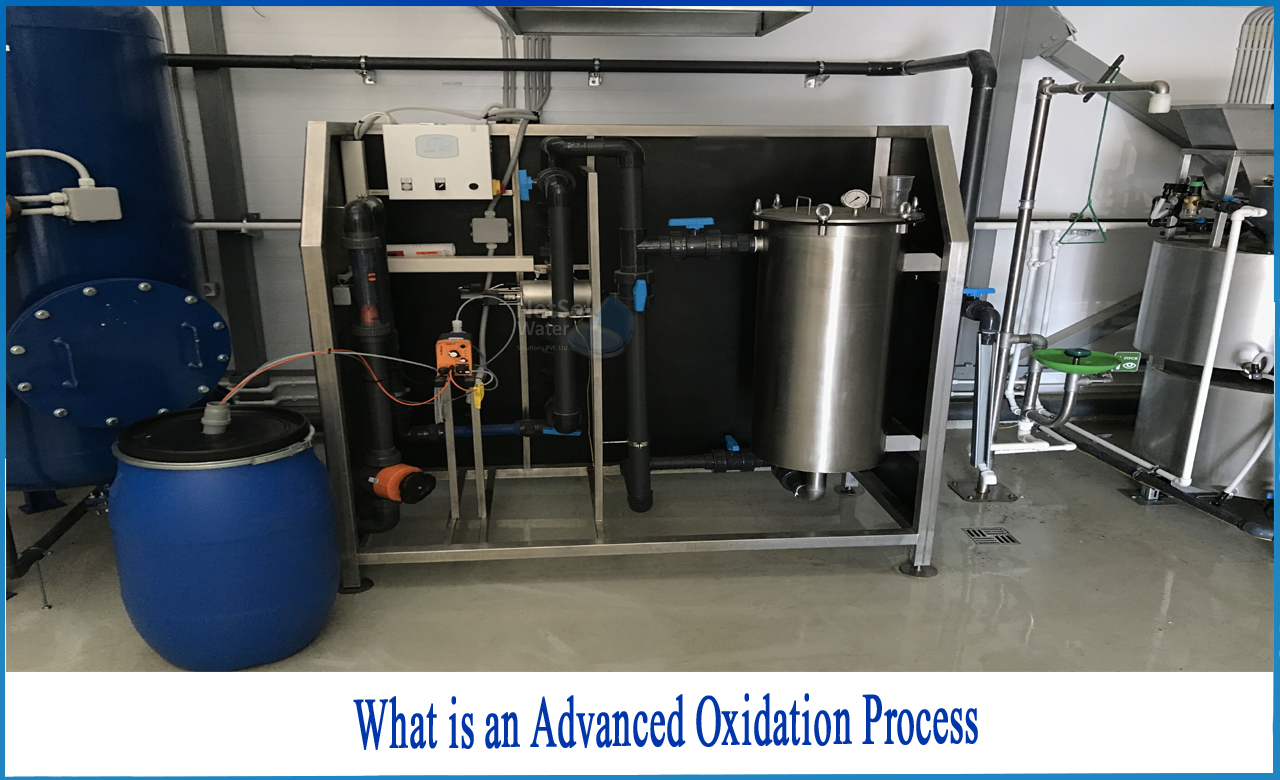What is an Advanced oxidation process?
“Near ambient temperature and pressure water treatment processes which involve the generation of hydroxyl radicals (OH) in sufficient quantity to affect water purification”.
These type of water treatments are sometimes called the “water treatment processes of the 21st century”, because if applied in a right place, contaminants concentrations can be significantly lowered. Many systems are qualified under the broad definition of AOP, and there are many technologies available to produce OH* radicals in the aqueous phase.
Advanced oxidation processes (AOPs) are the most appealing and advantageous alternative for removing organic contaminants from wastewater effectively.
Many toxic compounds in the discharged wastewater from enterprises have been discovered in the environment in recent years. Both humans and aquatic life are at risk from these pollutants. As a result, there is a pressing need to properly handle harmful contaminants. As a result, AOPs are well suited for the treatment of wastewater containing hazardous compounds. For the oxidation of organic contaminants, advanced oxidation technologies rely on the formation of powerful oxidants in situ, such as hydroxyl and sulphate radicals.
For higher treatment efficiency, certain AOPs combine ozone and UV irradiation. These AOP technologies for the treatment of drinking water and water reuse facilities have previously been created and implemented at full scale.
AOPs are well-known for bridging the gap between the treatability achieved by traditional physicochemical and biological procedures and the more rigorous limits imposed by environmental legislation on a daily basis. Despite the fact that substantial research has been conducted in AOPs over the last two decades, these technologies are still well established, and there are several domains that merit further investigation.
Why use advanced oxidation treatment?
Aromatics, pesticides, petroleum components, and volatile organic compounds (VOC) are examples of biologically harmful or non-degradable contaminants that may be removed from waste water using the AOP technique. The contaminating materials are mineralized to a great extent, converting them to stable inorganic components such as water, carbon dioxide, and salts. The reduction of chemical pollutants and toxicity to the point where the cleansed waste water may be reintroduced into the receiving stream is one of the goals of waste water purification using AOP techniques.
Why does COD increase initially and then decrease in AOP?
It's common in some types of industrial effluent, such as textile wastewater. There are some substances (such as dyes) that are resistant to COD oxidation. However, after treatment with UV/H2O2 or ozone, those compounds degrade into simpler molecules, reducing COD-oxidation resistance; this is why COD first rises.
COD, on the other hand, will decrease if the oxidative treatment (e.g., with ozone) is extended.
Applications of Advanced Oxidation
AOPs (Ad?vanced Oxidation Processes) are often utilized to remove toxins from waste water from a variety of heavy industries, including:
1: Plastic and petrochemical industries
2: Industry of Chemicals
3: Industry of Food Processing
4: Pharmaceutical Manufacturing
5: Industry of Metal and Metal Plating
6: Industry of Textiles and Dyeing
7: Streams of RO and NF brine
Technical assistance and guidance
Netsol Water collaborates with a wide range of international organizations to tackle complicated wastewater problems by strategically integrating modern treatment technology with practical solutions.
Think of us when it comes to wastewater management for your organisation, adapted to your specific needs. We provide a cost-effective method to reuse and recycle water. Deal with us for wastewater treatment equipment’s and develop your business while complying with environmental standards.
You may reach us via phone at +919650608473 or by email at enquiry@netsolwater.com



